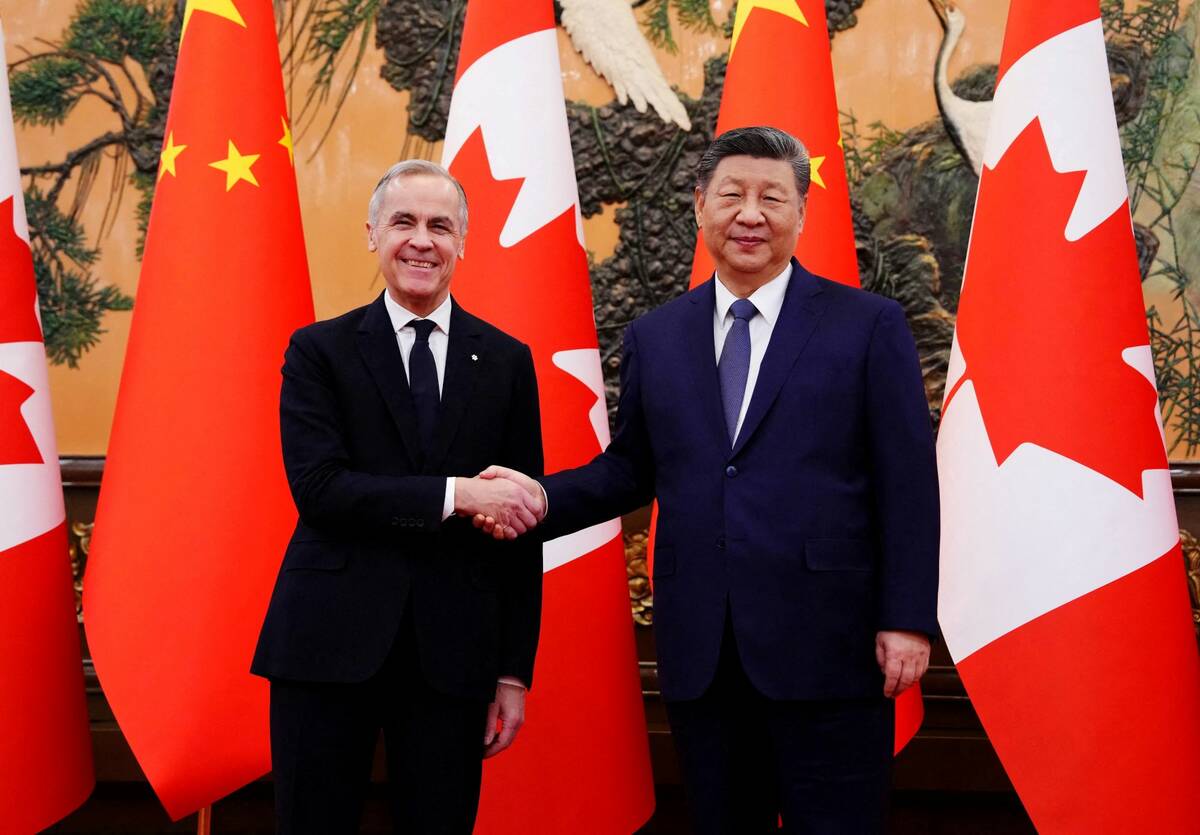October marks Fair Trade Month even as the cost of food remains high, so the question arises: why celebrate fair trade when many of its products come with a price premium?
Given our collective concerns on sustainability and social justice for the globe’s farmers, however, it is imperative that we talk about it.
While fair-trade food products may not yet have mass-market status, the recognition and credibility associated with them have unquestionably grown. According to a recent Globe Scan survey, more than 57 per cent of Canadians have encountered fair-trade logos while grocery shopping. The primary certified products are coffee, chocolate, tea and bananas.
Read Also

Pragmatism prevails for farmers in Canada-China trade talks
Canada’s trade concessions from China is a good news story for Canadian farmers, even if the U.S. Trump administration may not like it.
The core tenets of fair trade centre around fairer prices, decent working conditions and an equitable deal for farmers and workers in developing nations. This paradigm shift inherently incorporates sustainable farming practices.
Throughout history, economic cycles have influenced consumer perceptions of initiatives such as fair trade. During the financial crisis 15 years ago, the proportion of Canadians expressing significant or very high concern over climate change and environmental issues declined from 71 per cent in 2008 to 46 per cent in 2010, as per data from Globe Scan.
Today, amid surging food prices, that figure has dipped much more shallowly from 62 to 59 per cent.
Unlike previous periods of economic hardship, climate change remains a paramount concern in Canada. This shift is being driven by younger generations. Although only one in three Canadians has purchased fair-trade certified products in the last six months, most of them fall below the age of 43.
Grocers currently face diminished social capital. A substantial number of Canadians believe that corporate profiteering is unjustly inflating food prices.
This is an issue that grocers must confront. Aligning their product lines with underprivileged farmers in regions where socio-economic justice remains a daily struggle could be a strategic move, particularly in this economic climate.
It would not be surprising to witness a burgeoning assortment of fair-trade products on grocery store shelves in the coming years, precisely for the reasons outlined. Consumer trust is fundamentally rooted in the desire to effect meaningful change.
While grocers have long supported food banks and various charitable causes, these endeavours often lack conspicuous promotion. Conversely, fair trade stands out as a visible, transparent, trusted and trustworthy option – qualities that can enhance grocers’ ethical standing in the eyes of the public.
A recent Globe Scan survey reveals that more than 85 per cent of Canadians trust fair-trade certification labels, a level of trust that grocers can only aspire to at present.
It is essential to recognize that fair trade may not be within the financial reach of all consumers due to its price premium. Nevertheless, it bridges the economic gap between affluent and impoverished populations worldwide, imbuing consumers with a sense of social responsibility when they opt for fair-trade products. This compelling dynamic is not one to be easily dismissed.

















